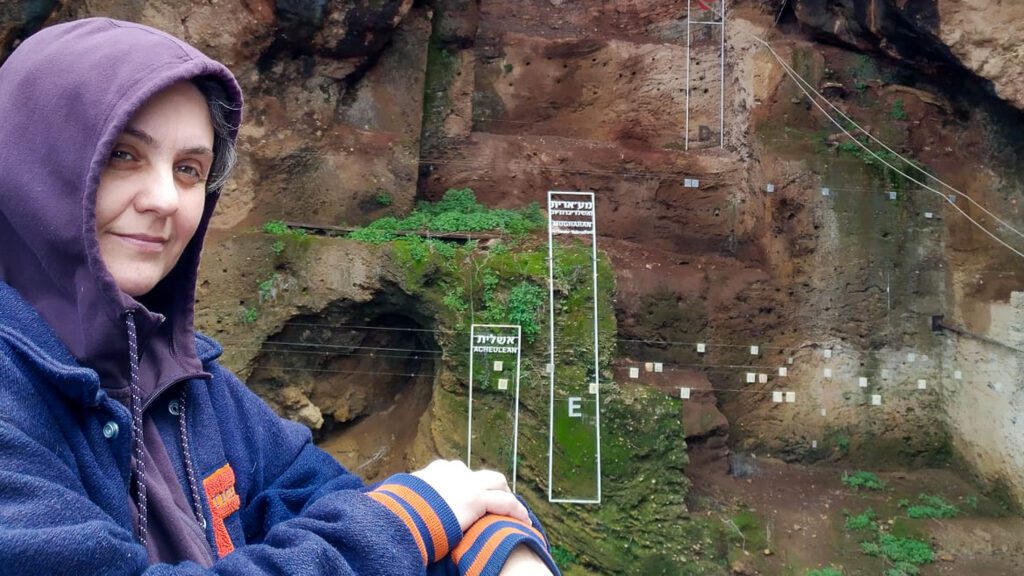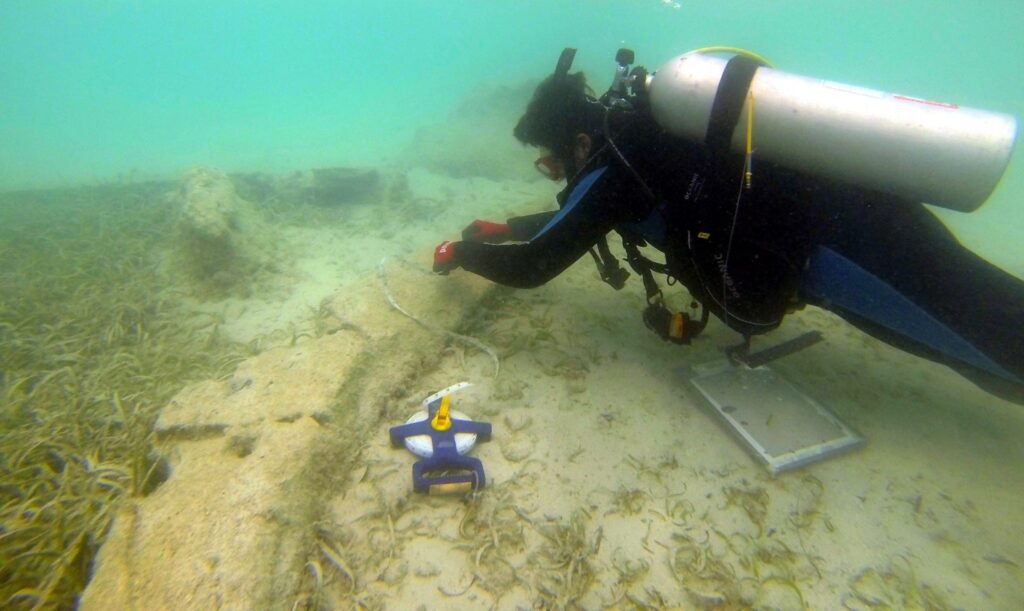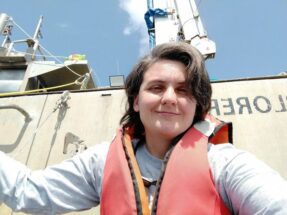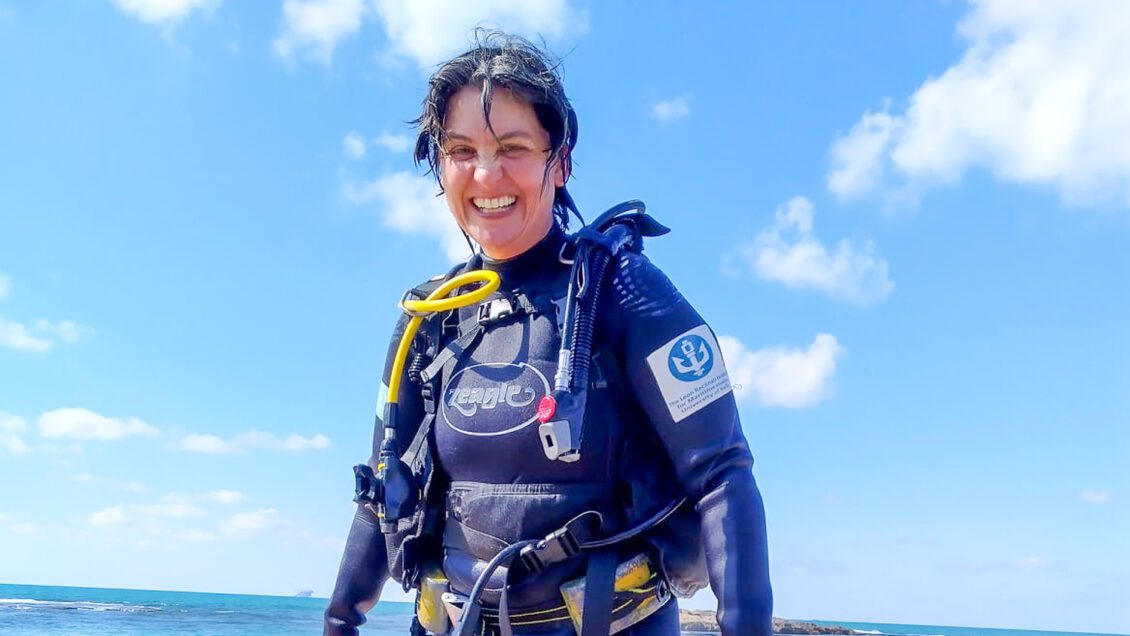Deborah Moss didn’t plan to be a teacher.
Moss, who graduated from Clemson University in 1995 with a mathematical sciences degree, thought about becoming a nuclear engineer in the U.S. Navy.
“I spent a semester at Clemson in the Army ROTC. They offered me a full scholarship, but they also couldn’t specify how I would be using my STEM skills to support the Army’s mission,” said Moss, who earned her degree in just two and a half years. “Then I got a postcard from the Navy asking how I would like to be a nuclear engineer. I thought that sounded really cool.”
There was one problem — at the time, the Navy didn’t allow women to serve aboard submarines.
“If I had been born 10 or 15 years later, I could have done it,” she said, referring to the Navy’s lifting the ban in 2010. “But because of the ban and because of the career pipeline for aircraft carrier nuclear engineers, the nuclear engineering path for me would have been kind of a dead end.”

Start of teaching career
Instead, the Navy asked if she’d like to teach those who were going to operate its nuclear submarines. The caveat was that the job would last only four years.
“I thought since my interests were things like cryptography, it would be a somewhat easy route to establish a security clearance and it would give me time to get an advanced degree,” said Moss, who holds master’s degrees in mathematics, meteorology and physical oceanography, and hydrographic science, and is pursuing a fourth in prehistoric archaeology.
When she interviewed for the job with Admiral Bruce DeMars, head of the Nuclear Navy, he asked what she thought she could teach at the Navy’s Nuclear Power School.
“Sir, you’ve been doing this a long time. I think you could teach me how to teach anything,” she said.
“In hindsight, it was quite a bit of hubris on my part. But, I think it’s true. The military standardizes things in such a way that once they figure something out, they document it really well,” she said. “They introduce you to a pedagogical method that raises up everyone regardless of background. The military is an academic environment that takes everyone, and they have to all graduate with the same skill level because they’re going to be running a nuclear reactor.”
She started out teaching math and then taught a series of classes on chemistry, materials and radiological fundamentals at the Naval Nuclear Power Training Command’s Nuclear Power School, which was located in Orlando before the Navy moved it to the Charleston, South Carolina area. Moss was eventually assigned to the math division at Nuclear Field “A” School.
“The ‘A’ school is run entirely by enlisted or former enlisted personnel, and I was the only female and the only person brought in from a college graduate pipeline to work at the school to run their math division,” she said.

Oceanography
When her four years of teaching ended, Moss had to request a transfer to another Naval community where there was the possibility for career progression. She requested two communities that she felt could use her mathematics background — intelligence and oceanography. She was accepted by the oceanography community.
During the rest of her 20-year Naval career, Moss found herself stationed in Monterey, California; San Diego; Mississippi; Washington, D.C.; and back to San Diego. During that time, Moss routed ships in the eastern Pacific, made nautical charts and did hydrographical work off the coast of Indonesia to determine whether the 2004 tsunami caused underwater changes.
“A lot of times the things you do in meteorology and oceanography are theoretical. But sometimes you get to see your work applied right away, like when you see the ship waiting there to lay a temporary pipeline to bring water on shore,” she said.
After her Navy teaching stint ended and she moved to other assignments, she continued to teach at community colleges near her duty stations.
Right before she retired from the Navy in 2015, the San Diego Community College District offered her an adjunct position at San Diego Mesa College teaching college-level classes inside local high schools. Three years later, the department chair sent out an email saying a local high school, Southern California Yeshiva High School, was looking for somebody to teach a statistics class.
She interviewed for the position. After the rabbi heard about her background with the Navy, he asked if she’d like to teach engineering, statistics and three other math classes. He also asked if she would sub for the biology and chemistry teacher occasionally.
Making an impact
Over the past five years, students from her engineering classes at SCY High have consistently placed in the top five in the Texas Instruments TI Codes Contest. This year, despite the school’s small size of 30 total students, her team came in first place.

“To be completely honest, I still don’t see myself as a teacher. I don’t have a teaching certificate. I can’t teach in California public schools. I can’t even substitute. But my students have a 100% pass rate on their Advanced Placement exams. They’ve finished second twice, third once and first once in a national engineering contest run by Texas Instruments,” she said.
“So, maybe I’m not a teacher. Maybe I’m just a mentor who is really passionate, who walks into the classroom and guides them through the curriculum. Having the opportunity to work with the next generation of scientists and engineers is truly one of my greatest experiences.”
She knows what an impact a teacher can have from her experiences at Clemson.
Moss, who played the mellophone, signed up for marching band. She was on the practice field one day when now-Professor Emeritus Richard Goodstein asked her if she would be interested in joining the symphonic band.
She told him she was a bit overwhelmed during her first semester of college and maybe she’d join in the spring. He told her they had a spring trip to Carnegie Hall planned, and he wasn’t going to let people join if they didn’t join in the fall.
“It’s one of those little moments in life that you remember. If he had not come up to me personally and told me what the consequences would be, I wouldn’t have done it. I wouldn’t have been involved. I wouldn’t have gone to New York. I would never have seen the Twin Towers. I wouldn’t have played in Carnegie Hall. I wouldn’t have a lot of the friends I have now,” she said.
“My mom, who recently passed away, got to see me play in Carnegie Hall – all because that man walked up to me and personally invited me to join the symphonic band. That conversation changed my life.”
Get in touch and we will connect you with the author or another expert.
Or email us at news@clemson.edu

